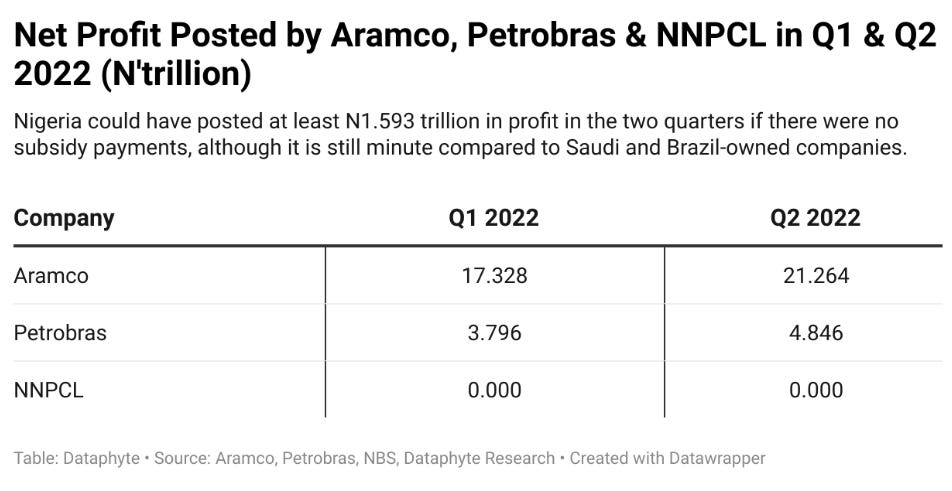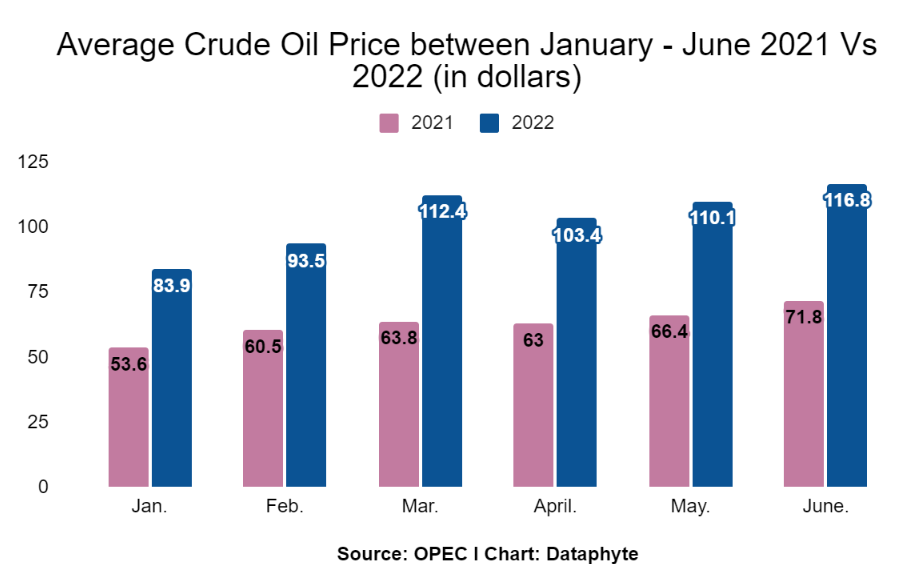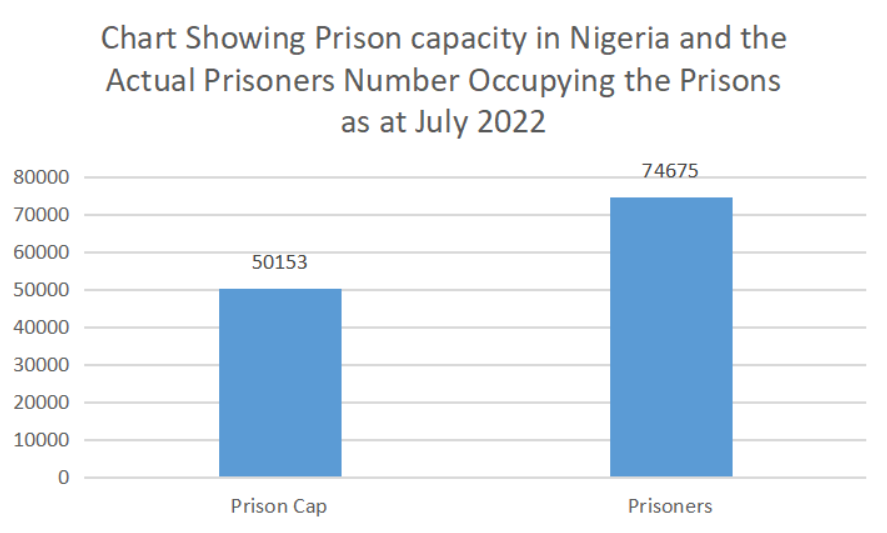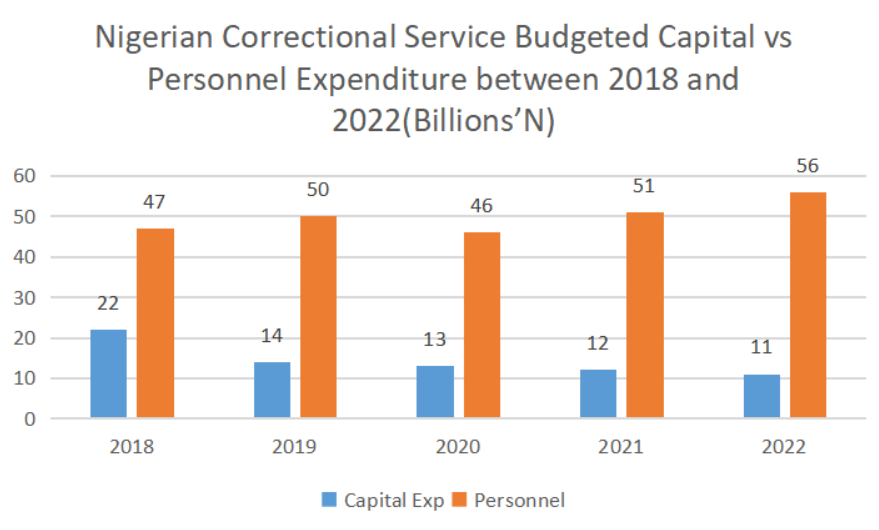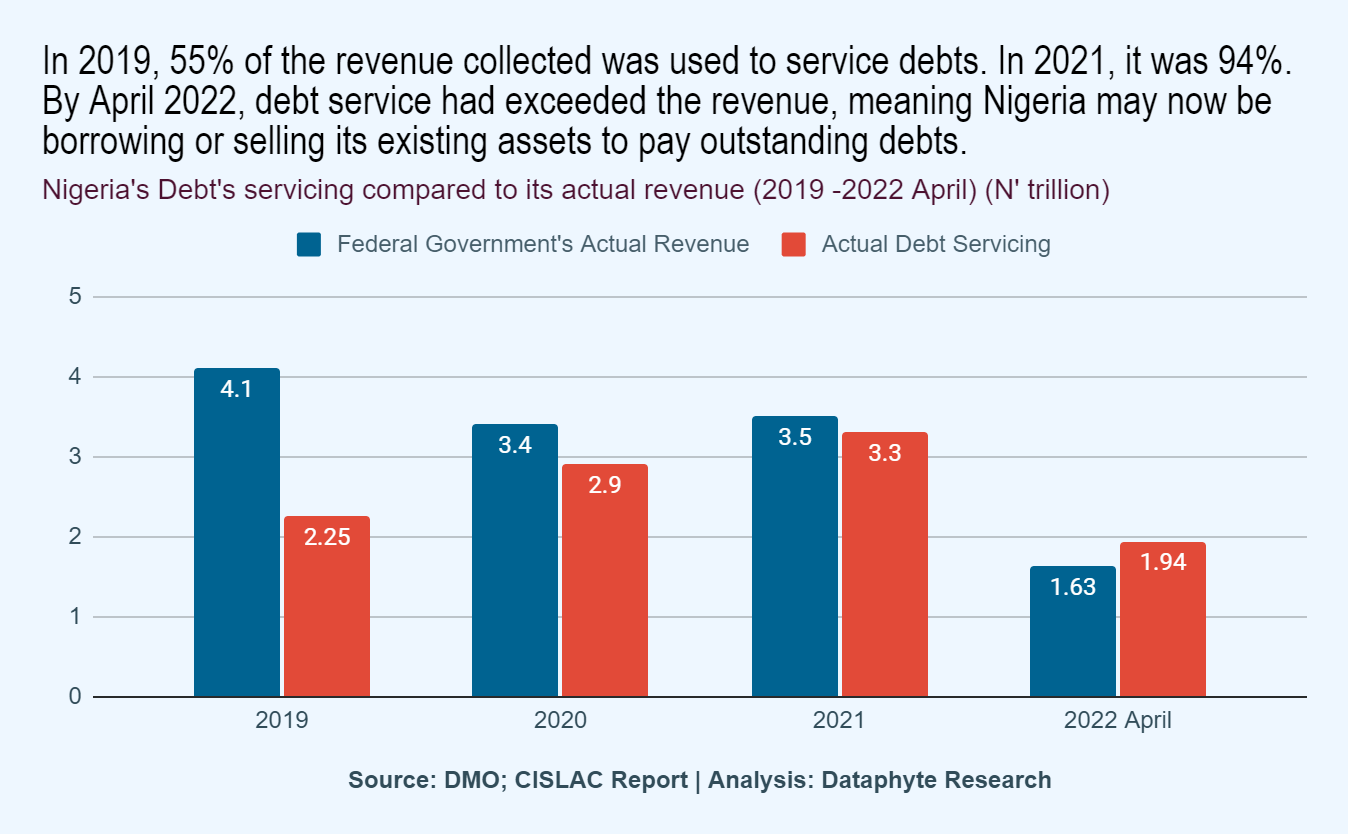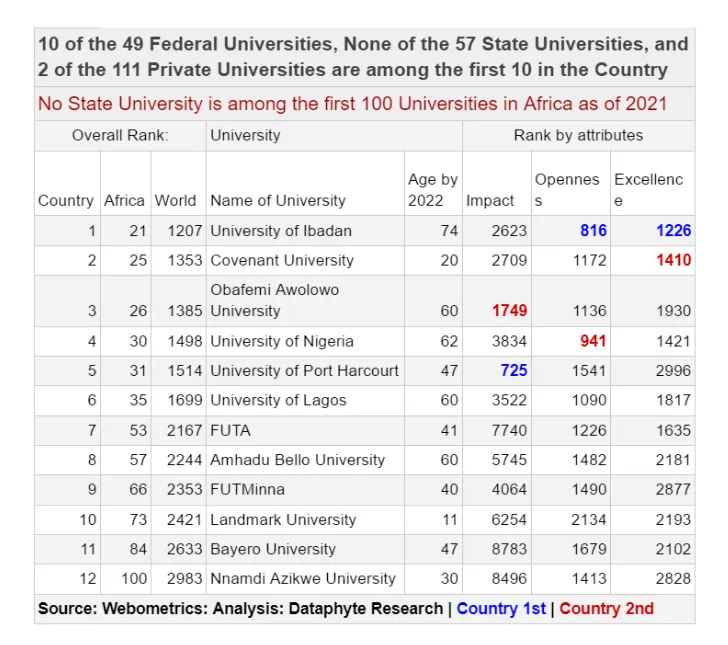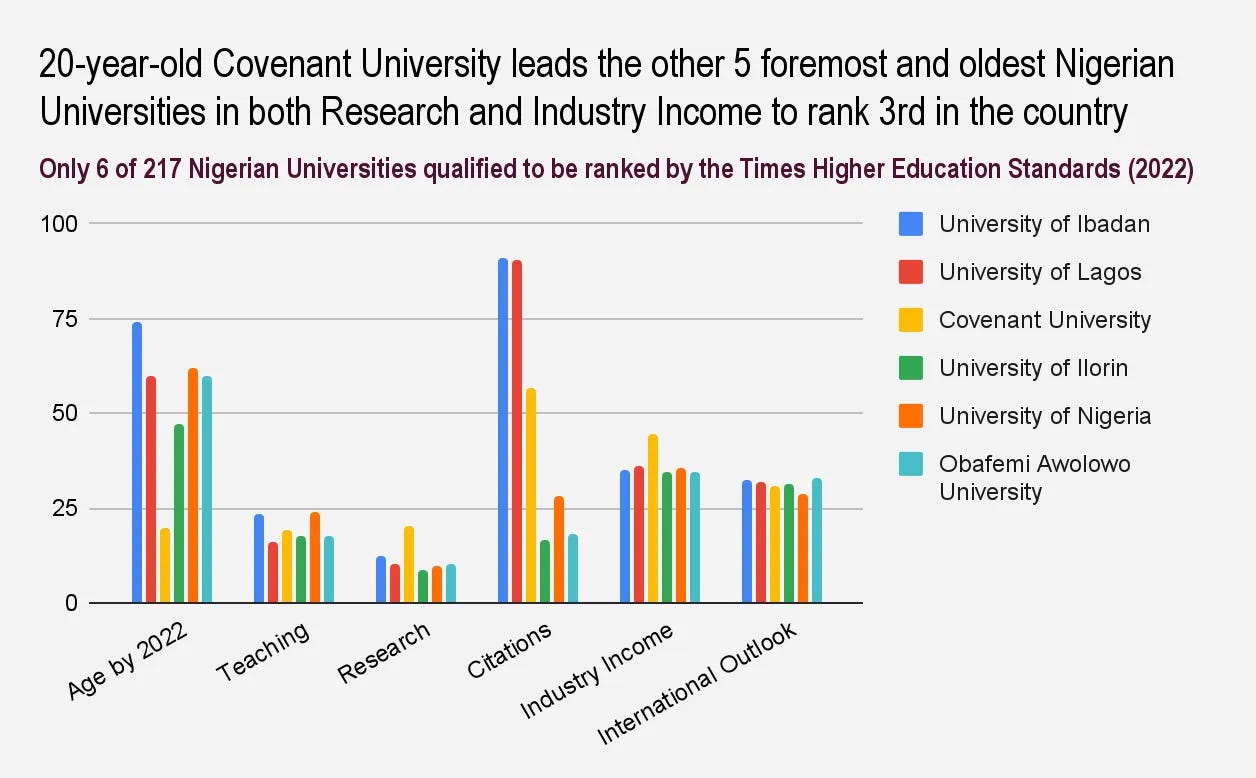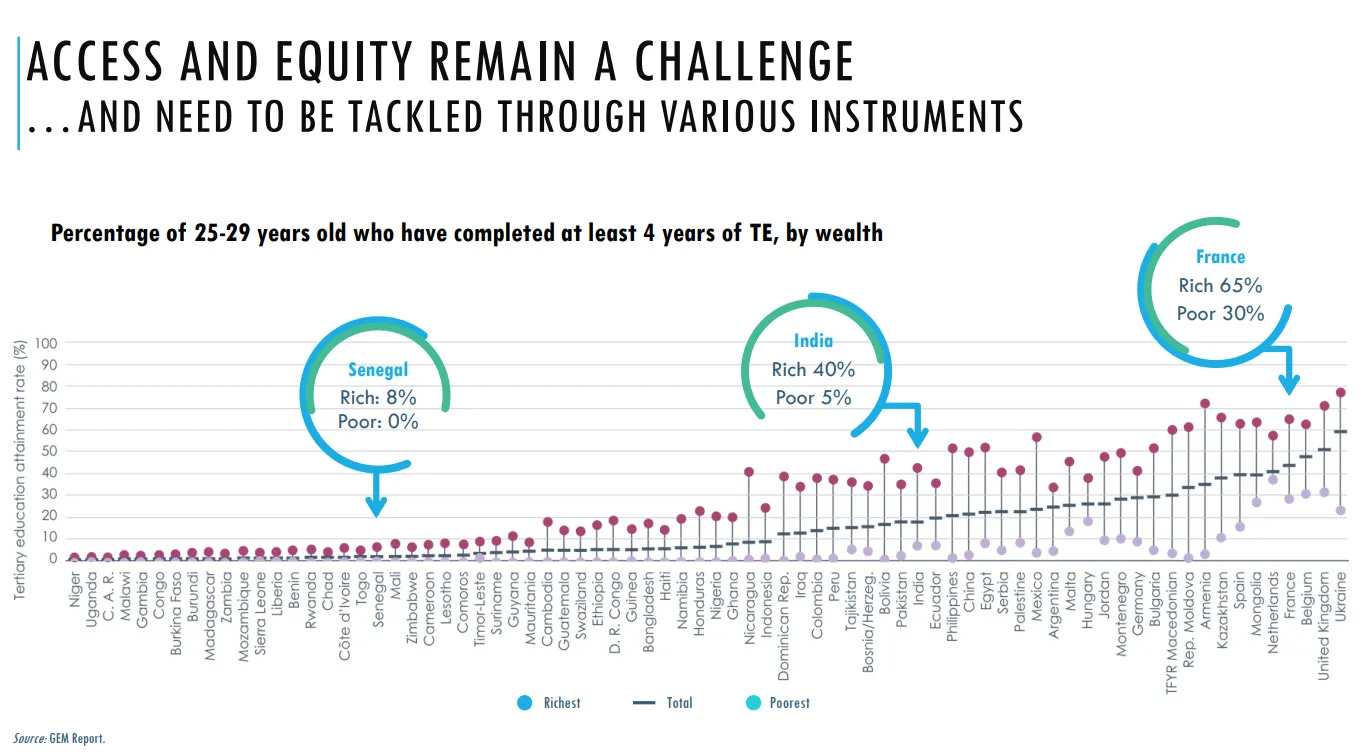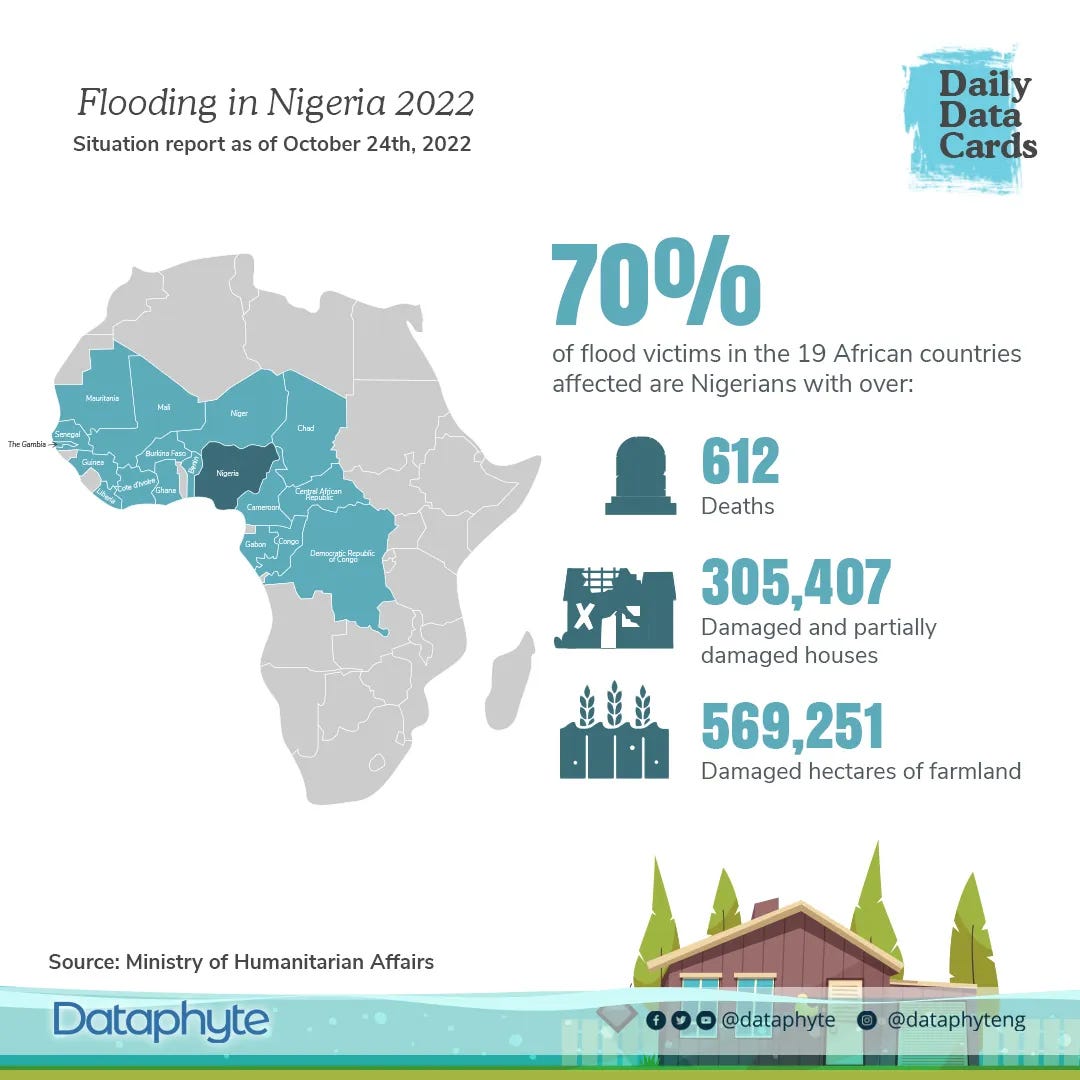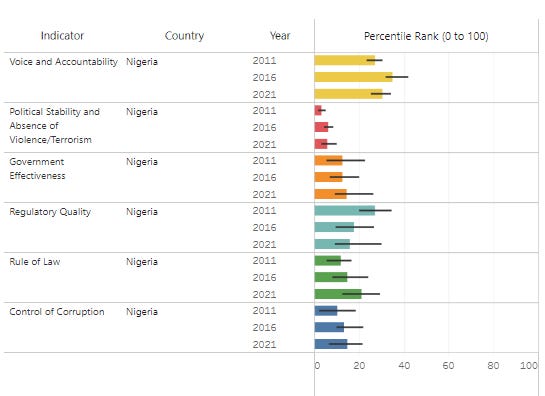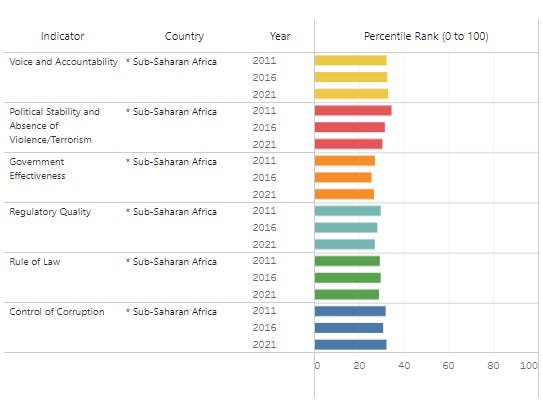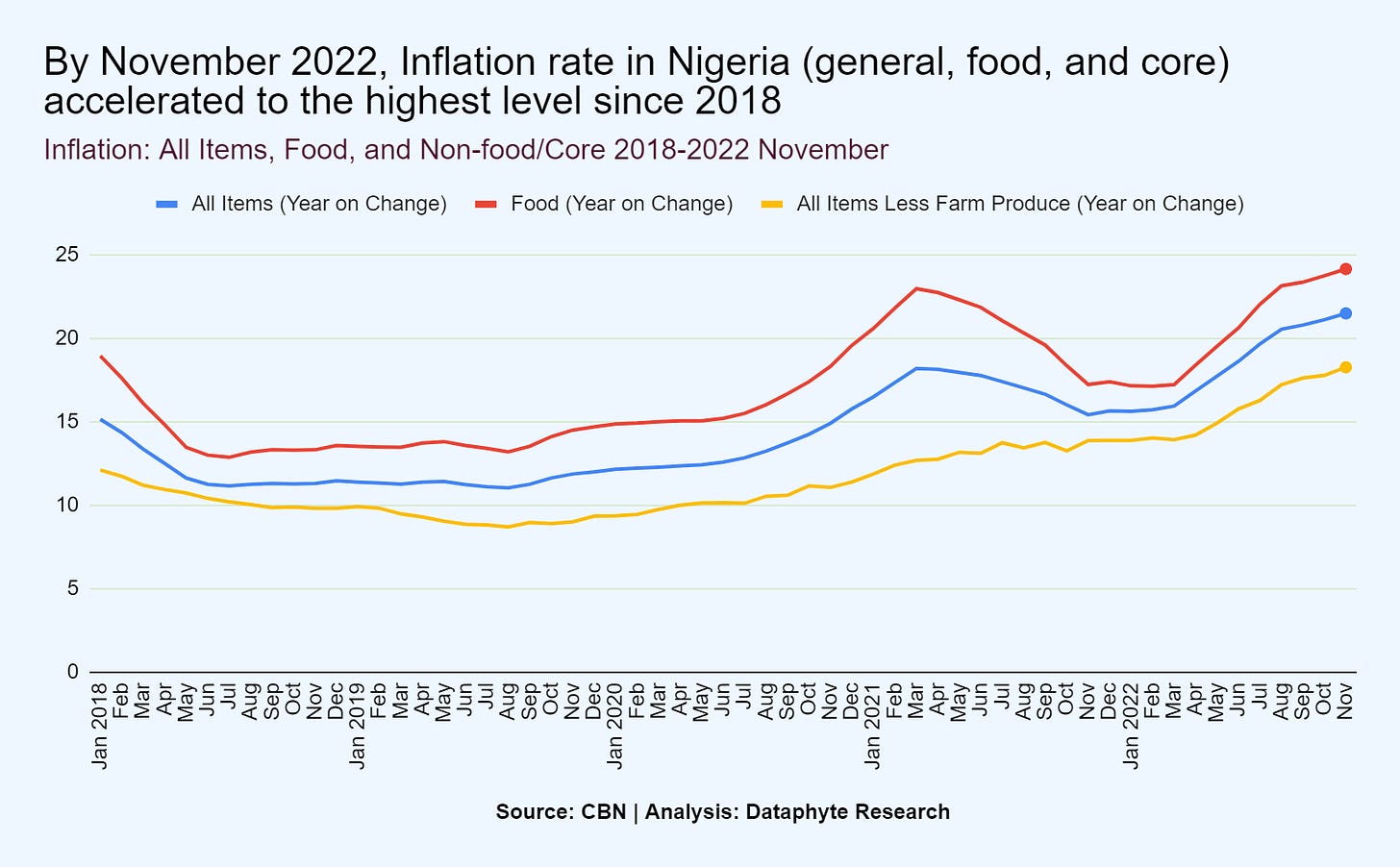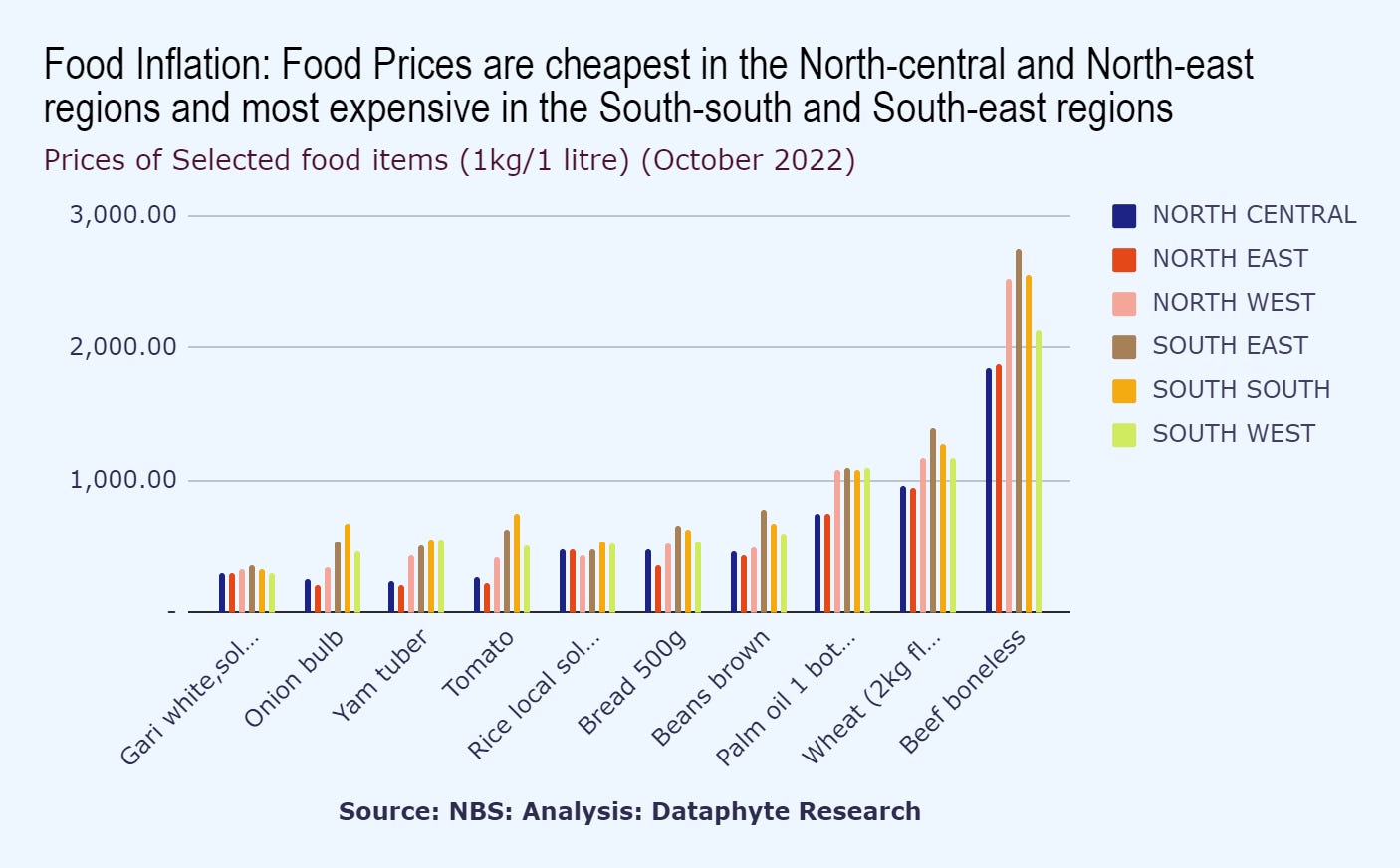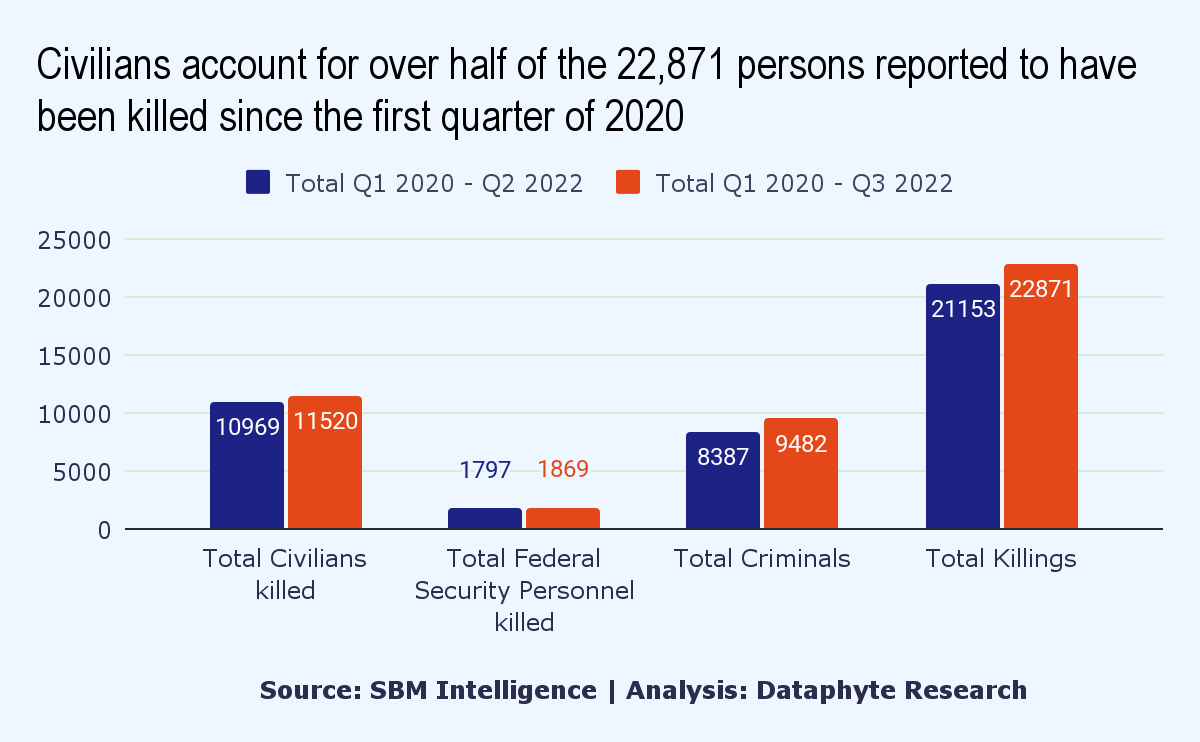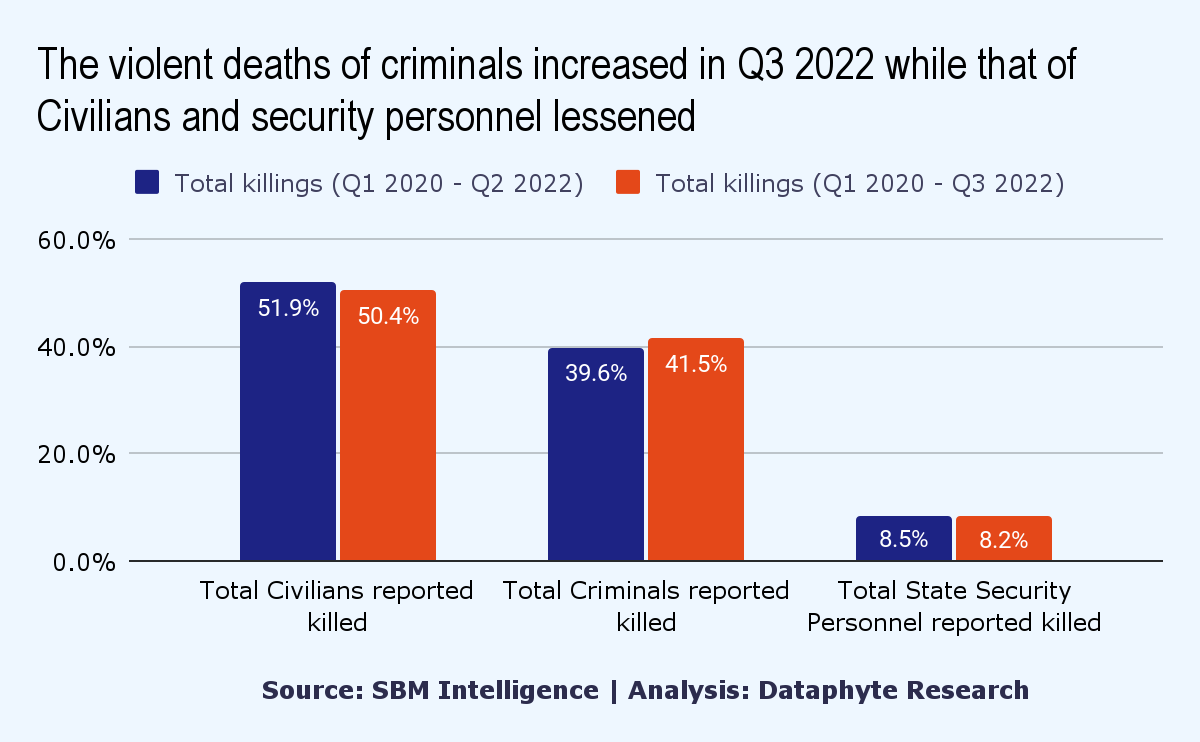22 alphameric data points that defined Nigeria in 2022
Welcome to 2023!
Trust you’re in for the deep dives into the obvious and the veiled politico-economic issues of the year.
Through the carefully crafted narrative, the variegated chart, and our varied art forms, we desire that, together, we can make sense of mined facts for informed perspectives and measured decisions throughout the year 2023.
Albeit, before we take a full dive into these politico-economic issues, we can use a recap of the developments that shaped the last year.
Here we assay 22 alphameric data points that defined the year 2022.
Arts
The year 2022 marked the beginning of the restitution of stolen Benin Bronzes and sundry artefacts to Nigeria by foreign museums.
Germany returned 22 Benin bronzes to their ancestral home 125 years after British soldiers looted them from West Africa. “The return of this set of Benin Bronzes follows a deal made earlier this year to transfer ownership of more than 1,000 of these precious objects”, the BBC reports.
The United States Museums returned 31 Benin artefacts too, and a London Museum released 6 of 72 Benin artefacts in its possession. The British Museum alone still holds 900 such historical treasures, the Guardian UK reported.
“The term Benin Bronzes refers to thousands of metal sculptures, plaques and carvings made between the 15th and 19th Centuries and looted by British troops in 1897 from the West African kingdom of Benin, in modern-day Nigeria's Edo state.”
Business
Nigeria's sole oil business entity, the Nigerian National Petroleum Company Limited (NNPCL), did not yield expected profits when compared with pairs like Brazil’s Petrobas and Saudi Arabia’s Aramco.
Despite the privatisation of the company, “Poor Production, Unprofitable Partnerships, and Unfavourable Expenditures are a Noose on the Neck of NNPCLs Profits, the company’s half-year accounts showed.
Also, while crude oil prices increased considerably in 2022, “Nigeria is not producing enough crude to meet its quota on the international market, currently pegged at 1.830 million barrels per day by the Organization of the Petroleum Exporting Countries (OPEC).”
Worse still, “Crude oil theft, poor pipeline facilities, and vandalism have continually plagued the Nigerian oil company limiting its ability to boost its revenue and profit. Dataphyte had reported.
Corrections
Nigeria recorded its 20th jailbreak in 7 years, when over 889 inmates of the Kuje Correctional Centre in Nigeria’s Federal Capital Territory escaped after an attack by Boko Haram on the night of July 6, 2022.
Besides the palpable fear among the citizenry over this critical blow to the country’s collapsing security profile, Dataphyte highlighted 4 issues of concern, namely:
Overcrowded Prisons: The prison capacity (cap) in Nigeria is 50,000, but about 75,000 inmates are packed into Nigerian correctional facilities.
Awaiting Trial Dilemma - 71% of prisoners in Nigeria according to the Nigerian Correctional Service, are awaiting trial,
Reduction in Prisons Capital Expenditure by half from N22 billion in 2018 to 11 billion in 2022.
Vulnerability to Attacks: There have been increased attacks on correctional facilities, from 4 jailbreaks in 2016 to 5 jailbreaks in 2020 and 7 jailbreaks in 2021.
It is doubtful how much behavioural correction these facilities can provide under these conditions.
Debts
By the first quarter of the 2022 fiscal year, Nigeria’s debt servicing cost had risen to the point where it exceeded the Federal government's actual revenue.
This puts the country in a position where it may be forced to borrow to pay outstanding debts or begin to sell or forfeit the people’s existing assets.
Nigeria's public debt reached N44.6 trillion in the third quarter of 2022, topping the total debt owed by previous administrations since 1999. The aforesaid public debt is a combination of N26.92 trillion in domestic debt and N17.5 trillion in external debt.
Education
Nigeria’s education system suffered a devastating setback in 2022 following the industrial action embarked upon by the Academic Staff Union of Universities (ASUU) from February 14 to October 14.
During the ASUU-Government 8-month stalemate, a Dataphyte editorial observed that, with “tattered primary schools and teetering high schools prepare students to be admitted to universities with a standard pass mark of 150 in 400 marks, the Academic Staff Union of Universities (ASUU) insists its members cannot rescue these undereducated ones like these - without adequate funding for the teaching and learning environment and for their research and industrial income.”
ASUU’s concerns about public (federal and state) and private universities in Nigeria reflect in the fact that only 6 of 217 Nigerian Universities qualified to be ranked by the Times Higher Education Standards in 2022.
Dataphyte noted in its editorial that there is a growing argument in some quarters that the “government is over subsidising universities fees and should raise student tuition and accommodation fees to provide quality education. They insist tertiary education is costly and is not meant for everyone.
“Interestingly, advocates of these different solutions often refer to some countries in Europe, America, Asia, and so on as countries with no cheap (tertiary) education (TE).
“Yet many of these countries by all means enable access to tertiary education (TE) for as many of their citizens as are willing, their poor and rich alike.
“Where Nigeria is the largest economy in Africa, it has a tertiary education completion rate of 8%, behind Ghana’s 9%, as of 2018.”
Flood
Nigeria was the hardest hit by floods among the 19 affected African countries in 2022. It affected many parts of the country, causing damage to virtually everything on its path. Official records show that the floods had killed over 600 persons, displacing more than 1.4 million people and injuring about 2,400 humans. As of 24th October, about 305,407 houses were damaged or partially damaged, and 569,251 hectares of land were submerged, affecting agricultural activities and other productive endeavours.
The flooding was caused by heavy rainfall and climate change, as well as the release of water from the Lagdo Dam in neighbouring Cameroon, which began on 13 September. Flooding, which affected Nigeria, Niger, Chad, and the surrounding region, began in the early summer of 2022 and ended in October.
Governance
The 2022 World Governance Index (WGI) released in September 2022 showed Nigeria still does poorly in the 6 criteria used for measuring governance, on a scale of 0% to 100%.
As of 2021, the country hardly measured up to 20% in all the 6 categories, except in the voice and accountability category, which may result from relentless advocacy by the civil society organisations.
Worse still, the country’s leadership also performs poorer than the sub-saharan African average in all the six categories.
The Worldwide Governance Indicators (WGI) research is funded by the Knowledge for Change Program of the World Bank. It forms “a research dataset summarizing the views on the quality of governance provided by a large number of enterprise, citizen and expert survey respondents in industrial and developing countries.”
The research views Governance to consist of “the traditions and institutions by which authority in a country is exercised. This includes the process by which governments are selected, monitored and replaced; the capacity of the government to effectively formulate and implement sound policies; and the respect of citizens and the state for the institutions that govern economic and social interactions among them.”
Health and Human rights
In December 2022, Reuters reported that the Nigerian military had administered oxytocin or at some point applied surgical abortion to forcefully terminate the pregnancies of over 10,000 women and young girls who were victims of Boko Haram insurgency in the country’s northeast.
They feared that the delivery of those pregnancies will give birth to Islamic militants who might eventually end up embracing terrorism in the future or be a nuisance to their families.
These abortions were said to have been conducted without the consent of these women and young girls.
However, this report was refuted by the Defense Headquarters in Abuja, claiming they were rehabilitating the women and children scattered across the affected zone.
Inflation
Nigeria recorded the highest inflation rate in 5 years as of November 2022. Inflation (all items) rose drastically to 21.47% in November 2022 amidst a steady increase in the cost of energy and food.
The Consumer Price Index (CPI), which measures the changes in the prices of goods and services, shows that inflation rose in November 2022 by 6.07% compared to November 2021.
This could be attributed to several factors, such as the increasing cost of importation due to the constant devaluing of the Naira, the sudden increase in demand in the period of the year, and also the increased cost of production.
However, while the rate of food inflation is at its highest in 5 years at 24.13%, the impact of the increased prices of food items appears to be felt less in the North of the country than in the south of the country.
Justice
Justice, beginning from Nigeria’s Supreme court, is still delayed, following a lack of an adequate number of Judges that could attend to the increasing number of cases across the nation.
At the apex court, only 13 Justices are left on the bench whereas the constitution made a provision for 21, as its Justices still struggle to dispense justice in over 6,884 delayed cases.
Similarly, only 1,179 Judges are available to attend to cases across various courts in a country estimated to have a population of over 218 million people. As a result of this shortfall, many cases are dragged on, with some case files being attended to for the first time in 10 years.
Killings
Nigeria appears to be winning its war against terrorism and crime, a Dataphyte analysis of data on reported killings collated by SBM intelligence shows.
The violent deaths of criminals increased by 13%, while that of civilians increased by 5%, and that of federal security personnel increased by 4% between the second quarter of 2022 and the third quarter.
However, civilians are the primary victims of these violent deaths, with 11,520 of 22,871 total deaths, as of September 2022.
Dataphyte’s analysis shows that the proportion of civilian deaths reduced from 51.9% of total deaths as of the second quarter of 2022 to 50.4% of total deaths by the third quarter of 2022.
Likewise, the proportion of state security personnel among the total persons reported killed reduced from 8.5% to 8.2%.
The proportion of criminals neutralised by security forces and civilian militias increased from 39.6% to 41.5% of the total casualties.
Watch out for the concluding part of this piece next week!





